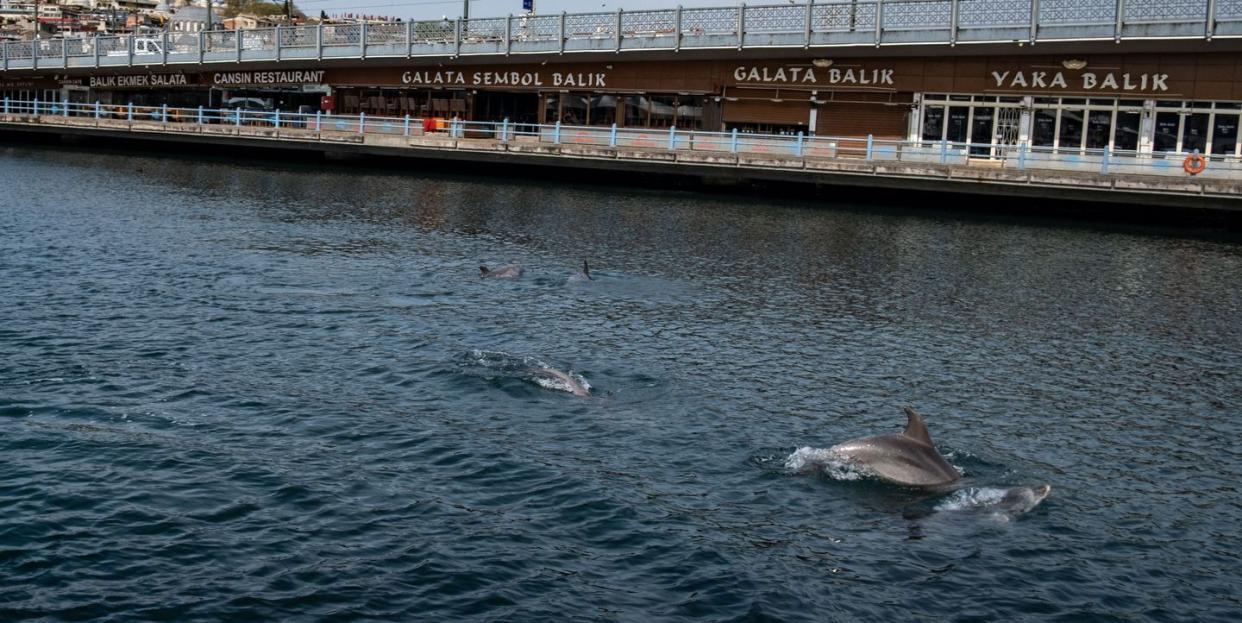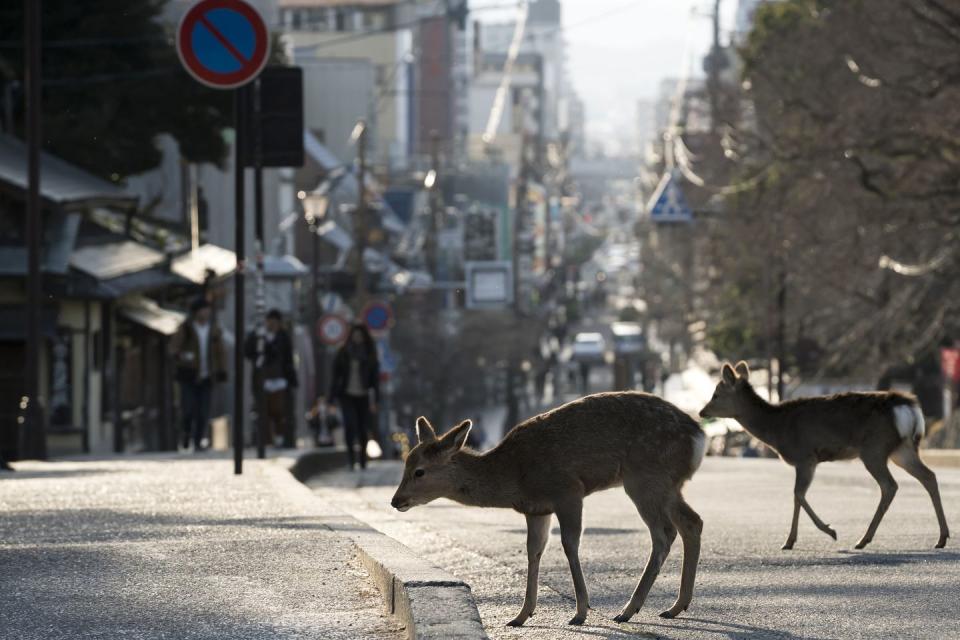Nature Is the Biggest Winner From COVID-19 Lockdowns

In a new paper, researchers describe a new term for the massive cessation of human activity that has occurred at the outset of COVID-19 as millions went into mandated lockdown.
Dubbing it the ‘anthropause,’ researchers are hoping to use this time to study the relationships between animals and humans in the hopes of finding new ways for us to coexist with our environments in a mutually beneficial manner.
COVID-19 has turned the world upside down. Globally, more than half a million people have died from the disease and in some areas, cases are on the rise. Still, one tiny silver lining has emerged during the pandemic: mother nature is taking advantage.
In Turkey’s Bosphorus Strait, dolphins have begun appearing closer to shore thanks to a decrease in human activity in the surrounding waters. The BBC reports that the Bosphorus is one of the busiest waterways in the world with tankers, cargo ships, fishing, and civilian boats all making their way through the area. Lockdown mandates equated to less traffic in the water which has allowed the dolphins, to comfortably explore news spaces.
The same trend is occurring in other parts of the world, too. In Albania, the pink flamingo population has increased by approximately 1,000 as more birds are flocking to the country’s western shorelines. In South Africa’s Kruger National Park, a pride of lions has been spotted in an area they don’t typically frequent.
Kruger visitors that tourists do not normally see. #SALockdown This lion pride are usually resident on Kempiana Contractual Park, an area Kruger tourists do not see. This afternoon they were lying on the tar road just outside of Orpen Rest Camp.
📸Section Ranger Richard Sowry pic.twitter.com/jFUBAWvmsA— Kruger National Park (@SANParksKNP) April 15, 2020
Now, researchers have come up with a term to describe this phenomenon: anthropause. In a paper published in Nature Ecology & Evolution, researchers say that they have coined the term to describe the reduction in human mobility that we’ve seen during the pandemic.
We noticed that people started referring to the lockdown period as the ‘Great Pause’, but felt that a more precise term would be helpful. We propose ‘anthropause’ to refer specifically to a considerable global slowing of modern human activities, notably travel. We are aware that the correct prefix is ‘anthropo-’ (for ‘human’) but opted for the shortened form, which is easier to remember and use, and where the missing ‘po’ is still echoed in the pronunciation of ‘pause.’
Less human interaction hasn’t been good news for all animals, though. Macaques in Thailand have become increasingly aggressive because plazas that are usually bustling with tourists ready to share bits of food have seen much less foot traffic.
In Nara, Japan, sika deer (who are famous for their manners) have taken to roaming the streets—something they don’t typically do—in search of food since tourism has plummeted and they can’t rely on people to give them snacks. The New York Times reports that the 1,000+ deer who live in Nara Park “rarely venture outside of its boundaries” but have begun doing so in recent months.

The researchers also cite the added threat to endangered species such as rhinos who face an “increased risk of poaching or persecution” without people to look out for them.
The researchers say that this time could “provide important insights into human-wildlife interactions in the twenty-first century.” Their hope is that data will be gathered on a global scale and in an attempt to analyze the biology of different animals “across sites that vary in COVID-19-related restrictions and resultant changes in human mobility ... across different time periods, spanning from before until after changes occurred.”
The team hopes that this research can help us find better ways of coexisting with wildlife without greatly altering and damaging their habitats.
You Might Also Like


